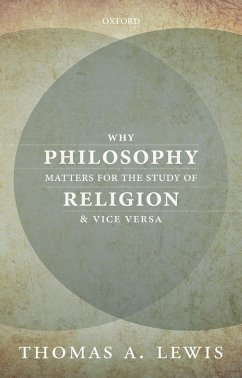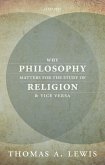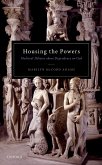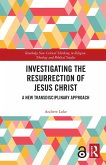Work in philosophy of religion is still strongly marked by an excessive focus on Christianity and, to a lesser extent, Judaism -- almost to the exclusion of other religious traditions. Moreover, in many cases it has been confined to a narrow set of intellectual problems, without embedding these in their larger social, historical, and practical contexts. Why Philosophy Matters for the Study of Religion--and Vice Versa addresses this situation through a series of interventions intended to work against the gap that exists between much scholarship in philosophy of religion and important recent developments that speak to religious studies as a whole. This volume takes up what, in recent years, has often been seen as a fundamental reason for excluding religious ethics and philosophy of religion from religious studies: their explicit normativity. Against this presupposition, Thomas A. Lewis argues that normativity is pervasive?not unique to ethics and philosophy of religion?and therefore not a reason to exclude them from religious studies. Lewis bridges more philosophical and historical subfields by arguing for the importance of history to the philosophy of religion. He considers the future of religious ethics, explaining that the field as whole should learn from the methodological developments associated with recent work in comparative religious ethics and 'comparative religious ethics' should no longer be conceived as a distinct subfield. The concluding chapter engages broader, post-9/11 arguments about the importance of studying religion arguing, that prominent contemporary notions of 'religious literacy' actually hinder our ability to grasp religion's significance and impact in the world today.
Dieser Download kann aus rechtlichen Gründen nur mit Rechnungsadresse in A, B, BG, CY, CZ, D, DK, EW, E, FIN, F, GR, HR, H, IRL, I, LT, L, LR, M, NL, PL, P, R, S, SLO, SK ausgeliefert werden.









